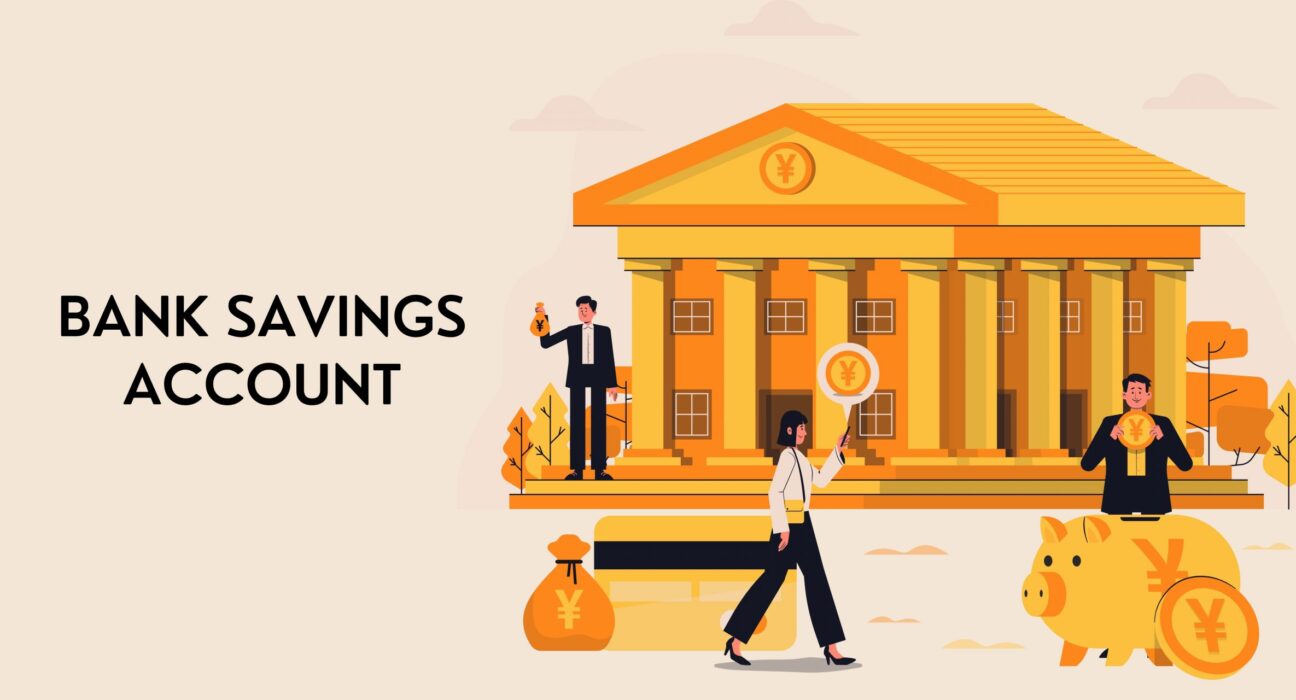Advantage And Disadvantages Of a Savings Account: What should you do with any extra money you may have after paying your bills? A typical option to think about is a savings account. A saving account is a long-term, crucial instrument for money management that can help you meet a variety of obligations. Also, the fact that a bank or credit union is holding it suggests that you are depositing your money in an area that is not totally under your control.
Do your financial needs match those of this money management tool? By comparing a saving account’s advantages and disadvantages, you can decide which one is ideal for your financial circumstances.
RECOMMENDED Student Loan: All You Need to Know
Advantage And Disadvantages of A Savings Account
What Is A Savings Account?
You can place your money in a savings account to keep it safe. Unlike a typical bank account that is used for daily activities, these accounts don’t have a bank card as a way to restrict access to your money. They also promote your saving plans and assist you in growing your balance by paying you interest on your payments. This interest is calculated using the balance in your savings account at a rate decided by your bank. The interest rate on a savings account might change, so if your institution decides to do so, it will do so in line with inflation and the country’s cash rate.
Many savings accounts are relatively cheap investment vehicles because they simply need a little cash beginning deposit. They are moreover accessible in a variety of forms and entry levels. They may be used by a wide range of people of all ages and are highly adaptable. Savings accounts are available to everyone, including newborns, corporations, and retirees. If you want to prevent the need to recover your money and know exactly what your rate will be, you may create a term deposit to lock it away for a set period of time at a fixed interest rate.\
Pros and Cons of Traditional Savings Accounts
Advantages (Merits) of a savings account
1. Insurance is available for savings accounts in the US: In a US financial institution, look for the words “insured by the FDIC or NCUA” while opening a savings account. Your money will be protected in this way to the fullest extent permitted by law. Under basic deposit insurance, each depositor, insurance financial institution, and ownership type may get up to a combined $250,000 in insurance coverage.
2. You may still quickly access your money: The majority of banks and credit unions give you 24/7 online access to your money. All you require is an internet or data connection. You can link your savings account to other accounts you may have, such as a checking account, at many banks, which can help you avoid paying overdraft penalties. You can also swiftly move money between accounts after regular banking hours thanks to this.
3. Your cash is safeguarded: When your money is being held by a third party, your personal security is increased. Having cash on your property not only makes you more likely to be robbed, but such losses are often not covered by a homeowner’s or renter’s insurance policy.
A house fire or other natural disaster could also cause you to lose your money. When you keep your money in a savings account, both you and your money are safer.
4. With very little money, an account may be opened: Many savings accounts can be started for approximately $25. Some banks might let you open an account for just $1, while others might set an even lower threshold. This gives you the opportunity to start saving even if you don’t have much money.
5. Savings accounts may allow automatic bill payments: Savings accounts that are exempt from withdrawal and transfer limitations are allowed to make automatic bill payments at many financial institutions. This will save you time because you won’t have to pay each bill separately every month, and you’ll also be less likely to pay late fees if you forget. Of course, you’ll need funds in the account to cover the charge, but if you do, you’ll be able to maintain a higher credit score over time.
Explore latest Scholarships here (Local and International Fully Funded)
6. You are given security: In case of an emergency, you might choose to save money in a savings account. If you lost your job, for instance, you might utilize your savings to pay your bills each month. Alternately, you might use your money to purchase a replacement water heater if yours breaks. Think of a savings account as a small insurance policy that, in case of an emergency, can assist you in maintaining your current standard of living.
7. Savings Accounts May Be Managed As Joint Accounts: An account that is formed, registered, and held by two or more people is referred to as a joint account. Hence, a savings account can be managed by two or more people. For instance, you and your partner or spouse can open a joint savings account if you both want to save money. As a result, it will provide you access to the money pool so that you can check on it or withdraw money as needed to make sure your goal is being met.
Again, a joint savings account makes it simple for two or more people to save money jointly and ensures that all account holders can see the balance.
Every account holder would save twice as much money if they all made deposits on a monthly basis (especially if the savings account has high interest). Nowadays, people use joint accounts for savings in order to quickly expand their savings. The same applies to a dependable individual or group.
8. There Is No Withdrawal Period: Unlike fixed deposit accounts, your savings account allows withdrawals at any time as long as you have funds in it. Hence, with a savings account, you are not committed for a set amount of time. Also, it implies that you are free to swap savings accounts whenever you wish.
Depending on your objective or aim for the savings, you might opt to save for a long or short length of time. Your savings account cannot be withdrawn from or deposited into at a specific moment. So, this account can release your money whenever you need it. If you reach your savings goal earlier than you anticipate, it might.
9. Interest will frequently accumulate in savings accounts over time: Despite the fact that interest rates have been so low since 2007, with many savings accounts earning less than 1%, you will still accumulate interest with an account over time. This suggests that investing your money could result in greater profits than keeping it in a home safe.
Disdvantages (demerits) of a savings account
1. Monthly or even annually is how most financial institutions compound interest: While some internet banks compound interest daily, most traditional banks and credit unions only do it once a month. This suggests that not always is the full potential of your money realized, especially when compared to other investing options.
2. There are statutory limitations on the overall number and type of withdrawals that may be made in a statement cycle in the US, notwithstanding the ease of regular transfers of money across accounts. Under “Regulation D,” you are only allowed to make a total of six transfers or withdrawals each calendar month from each savings or money market account.
2. Savings account withdrawal restrictions exist:There are regulatory restrictions on the overall number and type of withdrawals that may be made in a statement cycle in the US, notwithstanding the ease of regular transfers of money across accounts. “Regulation D” limits the number of transfers or withdrawals from each savings or money market account to a maximum of six per calendar month. The list excludes checking accounts. Additional transactions typically incur a “excessive transaction” fee.
3. Some financial organizations charge fees for their savings accounts: There can be a monthly cost to keep your savings account open. To reduce this issue, look for fee-free solutions from neighboring banks or credit unions for the greatest results.
4. There are coverage limits: The average American, who now has less than $5,000 in savings, is not particularly harmed by the idea of an insurance limit. But, in order for the account to be fully funded, you must be careful where you invest your money if your net worth is higher than $250,000. Although insurance on a savings account is advantageous, it has a cap.
5. Having easy access to your money creates more incentives to spend it. Spending money is considerably simpler when you have easy access to it. As a result, many people choose to use various types of saves, such a certificate of deposit, in order to repress the want to spend their money. Although CDs are a wise choice and offer a greater interest rate, you cannot access your money without first agreeing to pay an early withdrawal penalty.
6. You might be required to carry a particular minimum amount: Several institutions may require you to keep a money market savings account open with a balance of at least $2,500 at all times. Several banks require a minimal monthly sum to maintain the account. If your savings fall below this amount, you may be subject to heavy penalties each month until the shortfall is made up.
7. Vulnerability Of Account:
Savings accounts are open to everyone, making it possible for online scammers to steal from them if precautions are not followed. Savings accounts are therefore at risk unless they are effectively protected from all types of danger and unauthorized access. While though having quick access to money is one of the benefits of having a savings account, it can also be a drawback for some people who may be victims.
Again, you may be more inclined to spend because you have unlimited access to your money in a savings account. You may therefore find it difficult to save for a long time.
Conclusion
The aforementioned details make it clear that a savings account has much more advantages than disadvantages. Instant savings accounts and zero-balance savings accounts are actually considerably easier to start and operate. In order to simply track your costs and deposit your income, register a savings account.
Do you know you can now get stories from your institutions, articles, events, and eyewitness account published on Campus 360 to reach our large audience?
You can also advertise your product and services on our page for more patronage.
Contact Campus 360 for publication of your eyewitness reports, stories, articles, events as well as products and services at campus360nigeria@gmail.com or Whatsapp (09034404736) for more information.
Don’t Miss news as it breaks, subscribe to our newsletter.
For Job Updates, Scholarships, and Latest news, Join the CAMPUS 360 WhatsApp Group by clicking HERE
Join the Campus 360 Facebook Group HERE
For the Latest Updates, Follow Our Facebook Page
Don't Miss Scholarships, Post UTME, JAMB and Admissions Updates. Receive news as they break.







